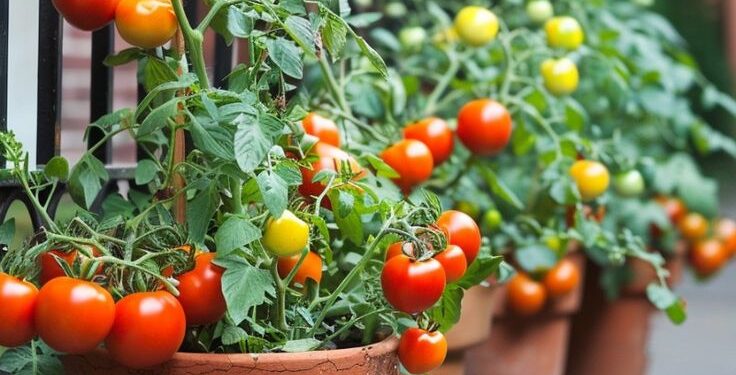Say Goodbye to Food Adulteration: Grow Fresh Veggies and Fruits on Your Balcony

Say Goodbye to Food Adulteration: Grow Fresh Veggies and Fruits on Your Balcony
Control and Awareness
Maninder Singh Nayyar, CEO and Founder of CEF Group, emphasizes the control one gains over their food by growing it themselves. “An ordinary person can’t have control over adulterated food items. However, they do have complete control over what they consume if they decide to grow their own produce,” he says. When individuals are responsible for their own gardens, they are fully aware of everything added to the soil and plants, ensuring that no harmful pesticides or chemicals reach their plates. This transparency leads to safer and more nutritious food.
Health and Nutrition
Homegrown produce is often richer in vitamins, minerals, and antioxidants compared to store-bought options. Nayyar highlights the health benefits: “Homegrown produce is often more nutritious than store-bought options. It is rich in vitamins, minerals, and antioxidants, thus being a healthier food choice.” The ability to consume fresh, unadulterated food directly from your garden can significantly enhance overall well-being.
Cost Savings
In addition to health benefits, growing your own food can lead to substantial cost savings. Seeds and small plants are generally inexpensive, and over time, the reduction in grocery bills becomes evident. Nayyar notes, “Not only does such food have greater health benefits, but it can also save a lot of money over time.”
Flavor and Satisfaction
The taste of homegrown produce is unmatched. The flavors are more intense, and there is immense satisfaction in consuming food that you have cultivated yourself. Nayyar points out, “The taste of homegrown fresh produce is unparalleled. The flavors are more intense, and the satisfaction derived from growing what one eats is unmatched.”
Environmental Impact
Growing your own food reduces dependency on commercially grown produce, thereby lowering the carbon footprint associated with large-scale farming and food distribution. Nayyar adds, “Decreasing dependency on commercially grown produce and being in charge of a major share of one’s food help to reduce the carbon footprint.”
Practical Tips and Government Role
Sarah Hussain, a food blogger from ZingyZest, shares her personal experience with home gardening. “Food adulteration is quite a disturbing reality of today, where almost everything is adulterated, and organic vegetables and fruits are almost double the cost, and not easily available,” she says. Hussain started with simple herbs and vegetables like coriander, basil, oregano, lemon, and garlic, which are easy to grow and require minimal space.
She acknowledges the limitations of home gardening on a large scale but hopes for governmental support in promoting sustainable practices. “While I know doing it at a mass level is not possible in our homes, I hope the government also steps in and plans for a better future,” she says.
Getting Started
Starting your own garden is easier than it seems. Here are a few tips to get you going:
- Choose the Right SpaceUtilize available spaces like balconies, terraces, or even windowsills.
- Start SmallBegin with easy-to-grow plants like herbs (coriander, basil), and gradually expand to vegetables and fruits.
- Use Quality SoilInvest in good-quality soil and compost to ensure healthy plant growth.
- Regular MaintenanceWater your plants regularly and monitor for pests.
- Enjoy the ProcessGardening can be a therapeutic and rewarding activity. Enjoy the journey of nurturing your plants and watching them grow.By taking control of what we consume and growing our own produce, we can combat food adulteration, enhance our health, save money, and reduce our environmental impact. As Nayyar and Hussain suggest, it’s a practical and fulfilling step towards a healthier and more sustainable future. So why not start today? Transform your balcony, terrace, or garden into a green oasis and say goodbye to adulterated food for good.









